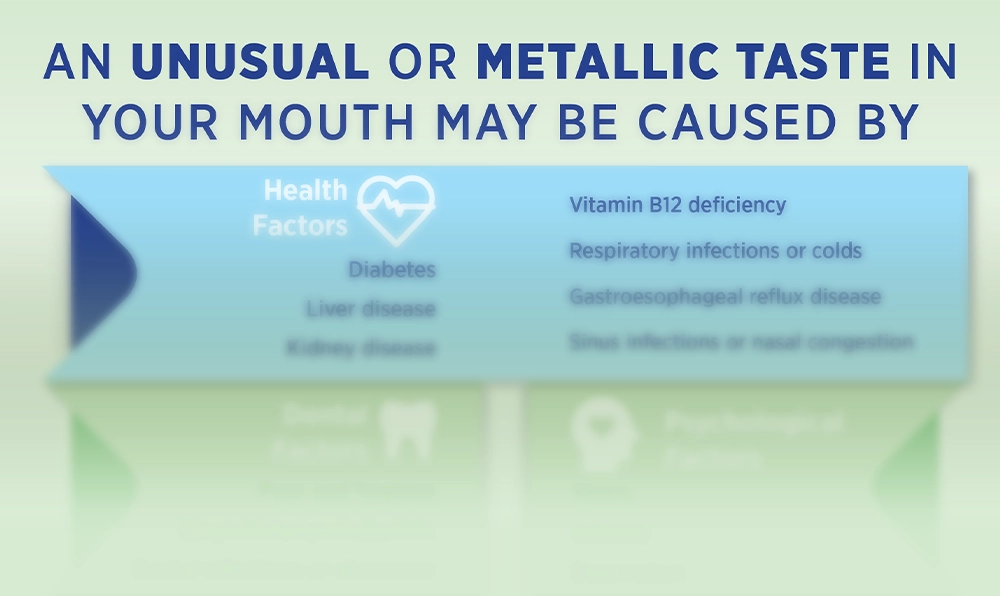

Many people with dementia experience sudden changes in eating habits and crave unhealthy foods rich in sugar. Nerves in the mouth are connected to the brain, and when these nerves are affected, they can cause the brain to experience a bad taste associated with the mouth.
Taste buds also diminish as dementia and Alzheimer’s progress. People with dementia do not taste food or experience flavor like they once did, leading to appetite changes. Another issue may be feeling overwhelmed with food choices or even forgetting to eat. It is common for children or caregivers of elderly people with dementia to monitor their health conditions regularly as they cannot for themselves. It is also important for caregivers to monitor the diets of dementia patients to ensure proper nutrition. This is key to keeping people healthy.
Dementia is when cognitive impairment leads to impaired function. The Alzheimer’s Association defines dementia as a general term for loss of memory, language, problem-solving, and other thinking abilities that are severe enough to interfere with daily life. Alzheimer’s is the most common cause of dementia.
Dementia is not a single disease; it’s a broad term — like heart disease — that covers a wide range of specific medical conditions, including Alzheimer’s disease. Diseases grouped under the general term “dementia” are caused by abnormal brain changes. There are 7 stages of dementia published by the Alzheimer’s Association and Barry Reisberg, M.D.:
Stage 1: No impairment. The person does not experience any memory problems. An interview with a medical professional does not show any evidence of symptoms of dementia.
Stage 2: Very mild cognitive decline. The person may feel as if he or she is having memory lapses, but no symptoms of dementia can be detected during a medical examination or by friends, family, or co-workers.
Stage 3: Mild cognitive decline. Friends, family, or co-workers begin to notice difficulties. During a detailed medical interview, doctors may be able to detect problems in memory or concentration, such as:
Stage 4: Moderate cognitive decline. A careful medical interview should be able to detect symptoms in several areas:
Stage 5: Moderately severe cognitive decline. Gaps in memory and thinking are noticeable, and individuals begin to need help with day-to-day activities. Individuals may:
Stage 6: Severe cognitive decline. Memory continues to worsen, personality changes may take place, and individuals need extensive help with daily activities. At this stage, individuals may:
Stage 7: Very severe cognitive decline. In the final stage of the disease, individuals lose the ability to respond to their environment, to carry on a conversation and, eventually, to control movement. They may still say words or phrases. They need help with their daily personal care, including eating or using the toilet. They may also lose the ability to smile, to sit without support and to hold their heads up. Reflexes become abnormal, muscles grow rigid, and swallowing is impaired.
Dementia can be dangerous if not monitored as critical medications can be overused or forgotten if they cannot remember if it was taken. Medical errors are the eighth leading cause of death in the United States, and a critical subgroup of these errors is that of patients who are harmed by pharmaceuticals that are intended to help them.
According to the Alzheimer’s Association, some causes of a poor appetite may be:
While it is essential for everyone to receive adequate nutrition, those with dementia have an added layer of care. This is not to say they need a specific diet, just extra attention.
Here are some tips to promote optimal health for those with dementia:
As discussed earlier, dementia patients with altered taste usually resist eating as an aversion to the taste in their mouth. Food does not seem appealing, as a result, nutrition and health can suffer. MetaQil can relieve the offensive tastes in their mouth making the patient more receptive to nutritious foods.
Some home remedies can also help with a metallic taste, but these do not provide immediate relief and may take weeks to see the slightest results. MetaQil is an oral rinse scientifically designed to alleviate metallic taste symptoms.
By using MetaQil as directed, it can reduce the adverse taste enabling your loved one to enjoy a healthy meal.

If you are looking for a unique and effective metallic taste solution, MetaQil is your best choice. MetaQil is a one-of-a-kind oral rinse scientifically formulated to help alleviate metallic taste symptoms. Consistent use of MetaQil rinse cools the mouth, providing instant, long-lasting comfort and fresh breath to those afflicted by taste disorders.
MetaQil is a one-of-a-kind solution for symptomatic relief of metallic taste. MetaQil’s scientifically designed formula alleviates metallic taste caused by chemotherapy, GERD, and various medications.
MetaQil gently cools the mouth and provides instant, long-lasting relief from metallic taste symptoms. It has a mild flavor and does not “sting” the mouth like an everyday mouthwash. Regular use of MetaQil can help your loved ones return to healthy eating and adequate nutrient intake.
For the best results, rinse approximately 5 ml (one teaspoon) of MetaQil® in your mouth for 30 seconds. MetaQil can be used on an as-needed basis. Use it alone or after other oral care activities.
Important: If you are pregnant or breastfeeding, please consult your physician before using MetaQil. Do not use MetaQil if you are taking any medications that are contraindicated with the product. Please consult with your physician if you have any concerns regarding the use of this product. Keep out of reach of children.
For more information about MetaQil, click here.
